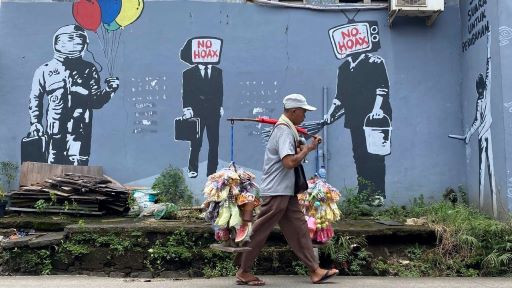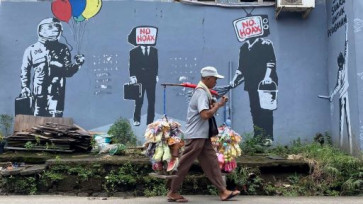Popular Reads
Top Results
Can't find what you're looking for?
View all search resultsPopular Reads
Top Results
Can't find what you're looking for?
View all search resultsDisinformation and political amnesia: Lessons from the Philippine elections
Political amnesia poses a serious threat to democracy, as it blurs the lines between facts and fiction, right and wrong and good and bad.
Change text size
Gift Premium Articles
to Anyone

Indonesia and the Philippines have much in common, including geographical, cultural and historical similarities. Both nations also face quite the same challenges in safeguarding their democracies amid prevalent disinformation and political amnesia.
Disinformation refers to intentionally or unintentionally disseminated false or misleading information designed to influence public opinion or manipulate voters. Political amnesia, on the other hand, involves the loss of memory or awareness of actual historical events.
However, political amnesia often results from disinformation, propaganda or manipulation. It can benefit specific groups seeking to seize power undemocratically by erasing or reinterpreting history to suit their interests.
One notable literary work discussing political amnesia is Political Amnesia: How We Forgot How To Govern by Laura Tingle, a political journalist from Australia. The book critiques the political conditions in Australia, which experienced a crisis in leadership, policies and institutions due to the collective loss of memory regarding how good governance should function. It also underscores the role of the media (and social media) in creating and reinforcing political amnesia.
An illustrative example of a country experiencing political amnesia is the Philippines, particularly in the 2022 presidential election won by Ferdinand "Bongbong" Marcos Jr., the son of former dictator Ferdinand Marcos Sr., who ruled the country for 21 years from 1965 to 1986. Despite the Marcos family's history of authoritarian rule and involvement in corruption, Marcos Jr. managed to craft a positive image for his family en route to victory.
In his efforts to build a positive image, Marcos Jr. was aided by widespread disinformation on social media. This disinformation sought to eliminate or alter historical facts regarding the crimes committed during his father’s tenure, such as human rights violations, democracy suppression and embezzlement of state funds. Despite the Marcos family's documented past wrongdoings, Marcos Jr. succeeded in winning the sympathy of the Filipino people by offering populist promises, including economic improvement, poverty alleviation and addressing the issue of drugs.

The act of disinformation also capitalized on the support of Rodrigo Duterte, the previous president known for his firm and anti-establishment leadership style.


















